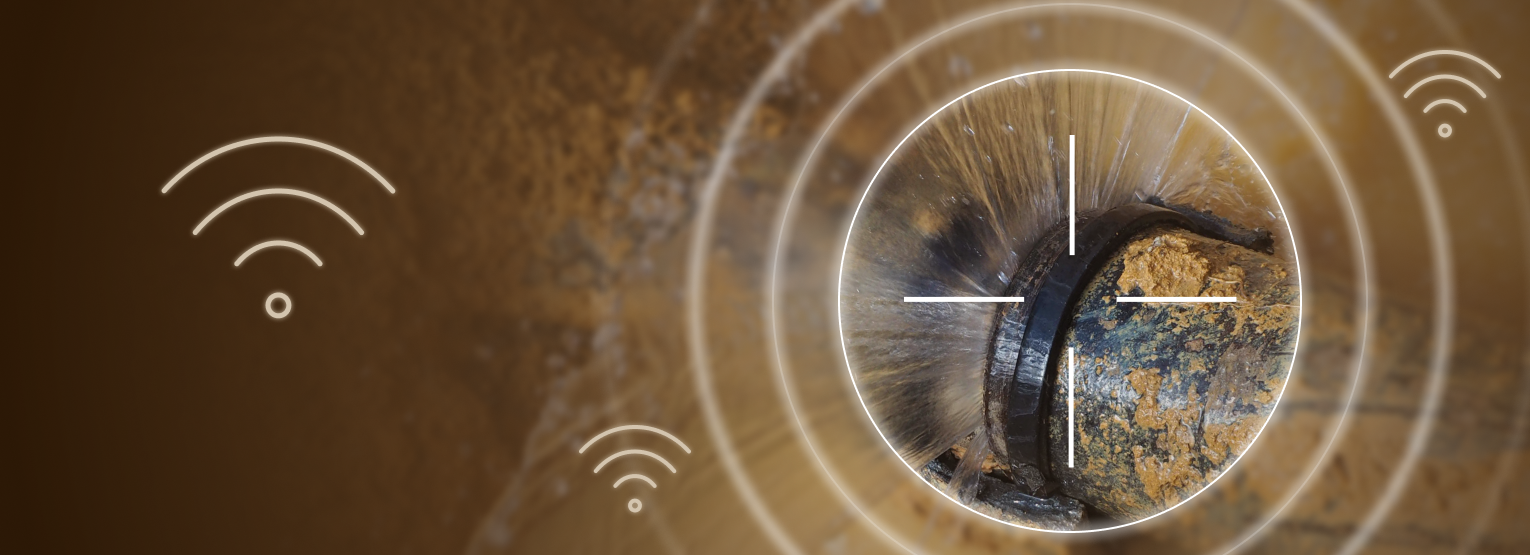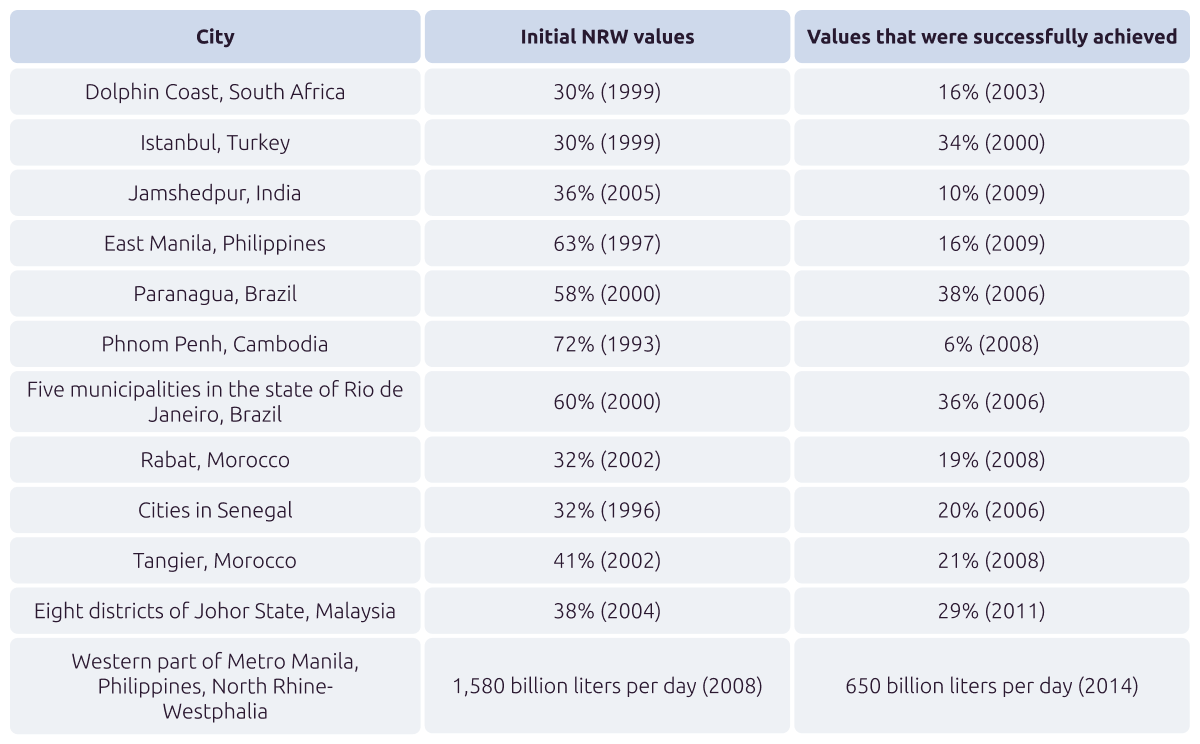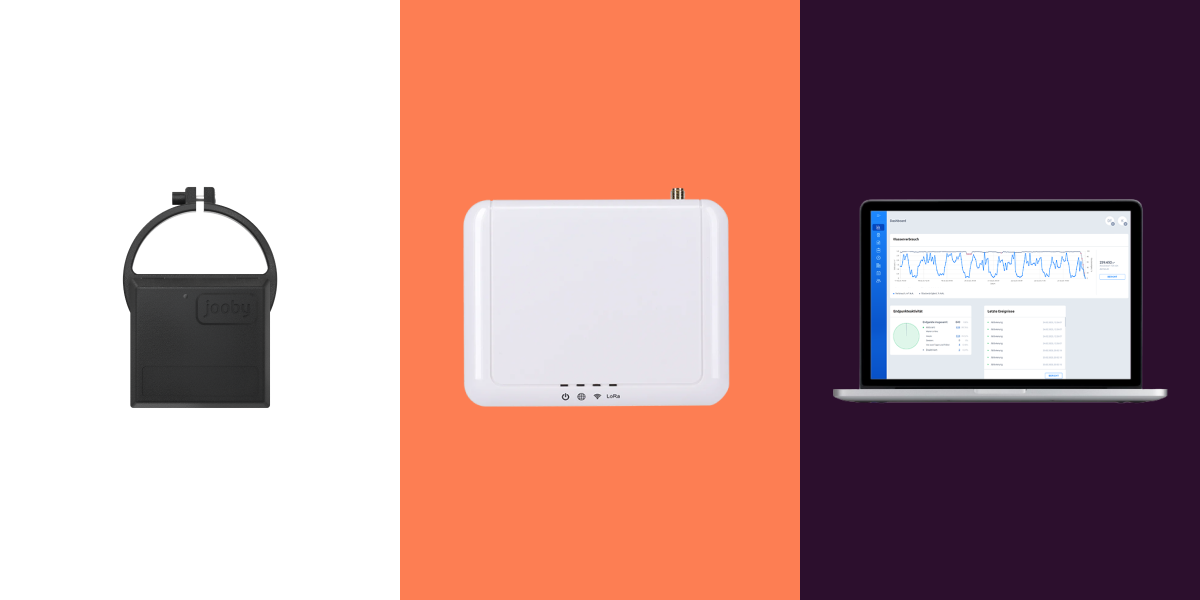Smart City - Blog - How water management can help utilities reduce non-revenue water (NRW) losses
28.12.2023
 1301
1301

How water management can help utilities reduce non-revenue water (NRW) losses

Fresh water is the most important resource for people, but its supplies are limited. In addition, a significant portion of fresh water is lost before reaching consumers. In this article, we will talk about what non-revenue water is and how smart city technologies contribute to water conservation and help avoid unnecessary expenditures.
Every year, humanity’s need for water increases. This is due to global warming and subsequent rising temperatures, an increase in the world population, and the development of technology. As a result, people need to learn how to use water rationally and carefully more than ever before.
Currently, a considerable amount of fresh water entering the water supply system does not bring profit to providers for a number of reasons, but primarily because the water never reaches the customer. According to statistics, in different countries this value fluctuates between 5–60%. Such water is called non-revenue water, or NRW; providers do not make any money from it.
What are non-revenue water losses?
NRW includes:
All these cases can be divided into two groups: real—ie physical losses—and apparent—losses due to inaccurate data recording.
First and foremost, water losses are direct losses for provider companies because there is no payment received for their services/product, but there are other, less obvious consequences:
Water network optimization will help reduce the amount of NRW and therefore minimize these unwanted outcomes. Instead, water network optimization will increase the efficiency of public utility companies, provide supply companies with modern analytical tools, and the ability to detect leaks quickly, resulting in significant savings.
Reducing non-revenue water requires a comprehensive strategy. Whilst focusing on one element may bring improvements, it will not make a significant impact and may prove to be unsustainable on its own. Therefore, we recommend considering the following aspects:
Upgrading the water supply network. A large amount of water is lost on the way to consumers due to the poor condition of water supply networks. If system components that are approaching the end of their service life are quickly and consistently replaced, these losses can be minimized.
To do this properly, we recommend not cutting costs on components and using high-quality materials when upgrading pipelines. Firstly, this will extend the service life of the lines, and secondly, it will allow the company to avoid additional costs that are inevitable with frequent repairs—payment for excavation work and losses from downtime.
Use of smart water systems and water consumption monitoring. Smart devices and sensors help to quickly find out about emergency situations, thefts, leaks, and breakdowns. Such devices can, for example, notify the provider that the subscriber has installed a magnet on the water meter or about a decrease in pressure in a certain section of the water pipe. With this information, the company can quickly take the appropriate course of action in response to the event.
For decades municipalities and public and private companies in different countries have been looking at different ways to reduce the amount of non-revenue water by: using environmental monitoring; implementing smart resource metering and systematic data analytics; and investing in infrastructure improvements. Here are examples of successful projects in this area:

In some countries, public utility companies have been able to reduce losses, but over time these utilities have often returned to their previous loss levels and sometimes even exceed them. This is due to the fact that companies do not always consider all the factors influencing the success of the program. For example, failures are possible if the company:

Jooby offers a complete smart water metering solution, including the following components:
Smart water metering devices. To keep automatic data records, customers don’t need to replace analog water meters with smart ones; it can be done instead at a lower cost. Jooby offers water providers and controlling companies the opportunity to equip analog water meters with radio modules and sensors. These are devices that are installed directly on the water meter. After configuration, the radio modules begin to read meter data and transmit it to the operator software at a given frequency.
A data network is presented with a system of LoRaWAN base stations that receive data from radio modules and then transmit it to the server.
Jooby Dashboard Software allows providers and controlling companies to process data easily and conveniently. Using the software, operators have access to up-to-date information on water consumption and the status of the radio modules.
With a relatively small investment, the Jooby solution makes it possible to implement smart water metering quickly and receive up-to-date data via real-time monitoring.
Remote sensing in smart cities allows provider companies to reduce water leakage and therefore reduce losses. Smart devices provide up-to-date information on the status of pipelines, water consumption, and emergency situations. With this real-time data, providers can quickly respond to incidents and plan pipeline upgrades.
Stay on top of the latest industry news
Thank you, we have received your message. Our manager will contact you shortly.
Our experts are always happy to help and promptly answer your questions. Please fill out the form to discuss your project and develop a tailored action plan.
Thank you, we have received your message. Our manager will contact you shortly.
Thank you, we have accepted your request. In the near future the responsible manager will contact you and clarify the details of the order.
Our experts are always happy to help and promptly answer your questions. Please fill out the form to discuss your project and develop a tailored action plan.
Thank you, we have received your message. Our manager will contact you shortly.